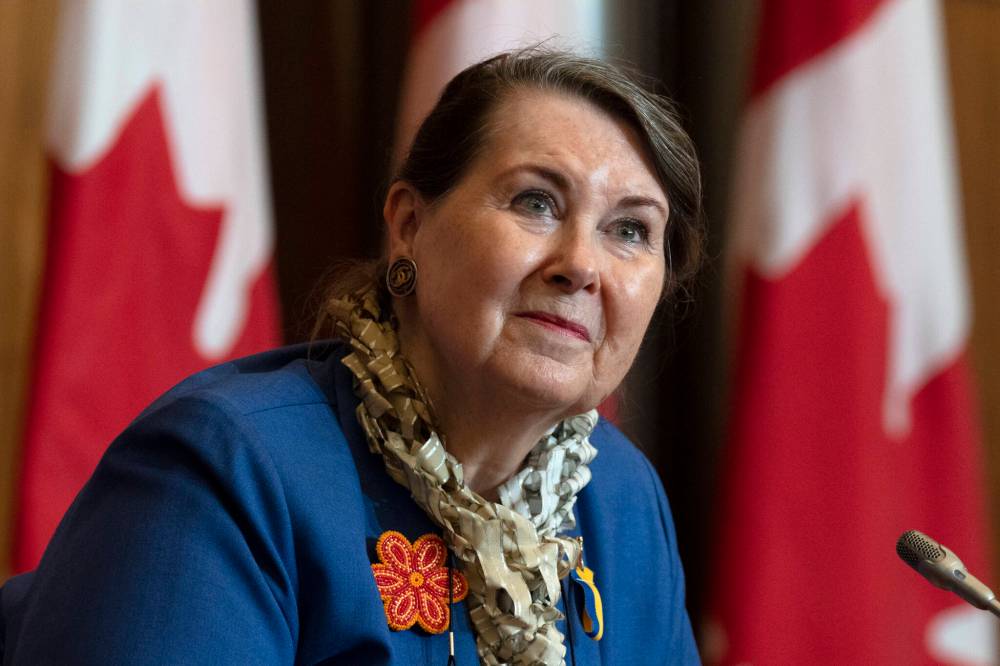Senator’s actions befitted crisis situation
Read this article for free:
or
Already have an account? Log in here »
To continue reading, please subscribe:
Monthly Digital Subscription
$1 per week for 24 weeks*
- Enjoy unlimited reading on winnipegfreepress.com
- Read the E-Edition, our digital replica newspaper
- Access News Break, our award-winning app
- Play interactive puzzles
*Billed as $4.00 plus GST every four weeks. After 24 weeks, price increases to the regular rate of $19.95 plus GST every four weeks. Offer available to new and qualified returning subscribers only. Cancel any time.
Monthly Digital Subscription
$4.99/week*
- Enjoy unlimited reading on winnipegfreepress.com
- Read the E-Edition, our digital replica newspaper
- Access News Break, our award-winning app
- Play interactive puzzles
*Billed as $19.95 plus GST every four weeks. Cancel any time.
To continue reading, please subscribe:
Add Free Press access to your Brandon Sun subscription for only an additional
$1 for the first 4 weeks*
*Your next subscription payment will increase by $1.00 and you will be charged $16.99 plus GST for four weeks. After four weeks, your payment will increase to $23.99 plus GST every four weeks.
Read unlimited articles for free today:
or
Already have an account? Log in here »
Hey there, time traveller!
This article was published 09/02/2023 (1109 days ago), so information in it may no longer be current.
The Oxford Dictionary defines “good faith” as “the intention to be honest and helpful.”
There seems to be little doubt Sen. Marilou McPhedran was acting in good faith when she tried to help Afghans seeking to flee their country after it was overtaken by the Taliban in 2021. Where the notion of good faith appears to have faltered is in the Canadian government’s middling effort to deliver on its promise to welcome tens of thousands of Afghan refugees, and in bureaucratic bungling that made a desperately bad situation worse.
Ms. McPhedran, a Winnipeg human-rights activist and lawyer who was appointed to the Senate in 2016 by Prime Minister Justin Trudeau, was accused last year of providing “inauthentic” travel documents, known as facilitation letters, to desperate Afghans in an effort to get them past military checkpoints and onto one of the last evacuation flights leaving Kabul’s airport.

The documents, printed on federal government letterhead, stated that their holders had been granted a visa to enter Canada and should be granted safe passage to the airport to board their organized flight.
The authenticity of the letters was later challenged by Immigration, Refugees and Citizenship Canada after six refugee claimants’ applications were denied. According to reporting by the Globe and Mail last September, such documents could only be provided by Global Affairs Canada and IRCC.
When the story was reported last fall, Ms. McPhedran insisted the documents she provided were created using a government letter template, and that “high level government officials” were aware of her efforts and, in some cases, “participated directly in these rescue efforts.”
IRCC officials referred the independent senator’s use of the facilitation-letter template to law enforcement for investigation.
IRCC officials referred the independent senator’s use of the facilitation-letter template to law enforcement for investigation.
At the time, Ms. McPhedran declined to identify the official who provided the letter template. Last week, however, she broke her silence after delivering an impassioned address in which she characterized IRCC’s accusation as untrue, and “a cowardly way to try and excuse a department refusing to keep the promises that Canada made.”
In an interview with the Free Press, Ms. McPhedran stated the letter template was provided to her by the chief of staff for then-minister of defence Harjit Sajjan, who, seemingly aware of the peril faced by asylum-seeking Afghans in the unfolding chaos, appended the document — which carried the Global Affairs Canada insignia — with a note saying “try it.”
And so she did. And the letter(s) proved successful in allowing at least some of those in its possession to pass through checkpoints and access the airport to be evacuated to safety. When they sought refugee status to enter Canada, however, some were rejected on the basis of the letters’ inauthenticity.
The applications of six applicants whose refugee claims were denied are being reviewed by a federal judge; Ms. McPhedran said she will file an affidavit in support of their claims, identifying the letters’ source and explaining when and why they were issued in the midst of a crisis.
The manner in which Ms. McPhedran’s actions have been criticized by IRCC officials brings to mind the heroics of Canadian diplomat Ken Taylor, who employed subterfuge and deception to assist in the escape of six U.S. diplomats from Iran after the storming of the U.S. embassy in 1979. Simply put, he did what needed to be done.
The good faith exercised by Ms. McPhedran in this case seems obvious. The way she was treated in the aftermath could fairly be described as concerning, but does not rise to the level of appalling — the latter adjective should be reserved for the Canadian government’s overall failure in delivering on its promises to Afghans in need.












